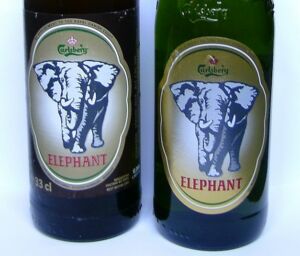News
Elephant beer going down well in India
This article is more than 9 years old.
Carlsberg, however, continues to struggle in Russia and China

The Elephant Beer brand is easily recognisable (photo: Kungfuman)
Carlsberg’s old sudsy stalwart, Elephant Beer, has become a trumpeting success in India.
In 2015, sales increased by 42 percent and the Danish brewery giant is aiming to become second on the Indian market within the next three years.
United Breweries Group is the current leader on the market, followed by SABmiller which also bottles Fosters, Grolsch, Miller, Peroni and Pilsner Urquell, as well as Coca-Cola.
According to Michael Jensen, the managing director of Carlsberg in India, the great popularity of the beer is down to the easily recognisable brand.
“The growth can be attributed to the long-term strategy to focus on key markets, especially cities, focused brand portfolio, expanding manufacturing footprint, increased product availability and above all a strong team,” Jensen told Indian news outlet BrandEquity.
READ MORE: Carlsberg cutting 2,000 jobs
Navigating Indian system
Despite the success, Carlsberg faces numerous challenges in the country, where each of its 29 states has its own rules, and the beer producer is thus forced to have breweries in every single one of them.
Jensen explained that the company now concentrates on 55 main cities and develops its national strategy based on what works there.
Great financial loss
Meanwhile, the company’s financial report for 2015 shows Carlsberg recorded a net loss of 2.6 billion kroner, particularly due to problems in Russia, Eastern Europe and China.
Carlsberg sold 4 percent less beer (based on volume) last year and the company’s operating profit dropped by 8 percent compared to 2014.










































